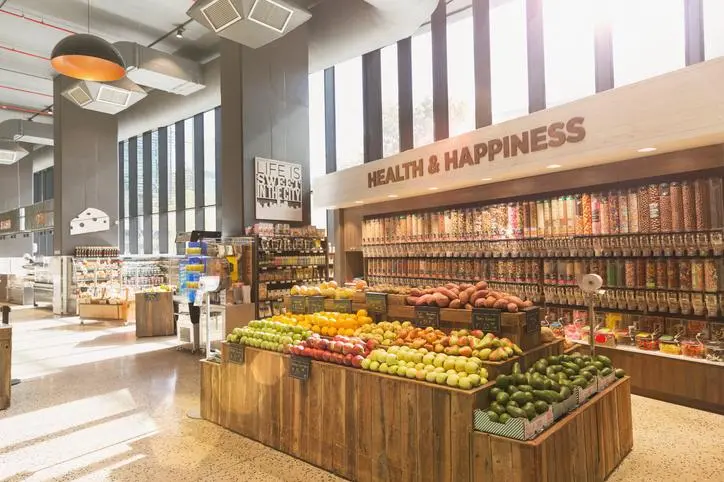PHOTO
SA's retail sector, in particular, was severely affected by the Covid-19 pandemic. At the time, it was widely believed that the retail industry would face a difficult recovery. However, the sector has shown remarkable resilience, with turnover now surpassing pre-Covid levels.
Although e-commerce has grown tremendously as a result of Covid-19, South Africans have returned to shopping centres over the last three years. This has led to a rise in foot traffic, a decrease in vacant spaces, and an increase in retailer turnover at malls around the nation.
This is evidenced by Redefine's FY23 results, which show continued improvement in operating metrics across the JSE-listed Reit's SA retail portfolio, which makes up 25.4% of Redefine's R59.9bn local asset platform.
Redefine reported strong letting activity and high tenant retention (92.1%) in FY23, with active occupancies of 93.6% at FY23, and an improvement of negative rental reversions from -8.6% in FY22 to -4.1% in FY23.
Increase of foot traffic
Nashil Chotoki, Redefine's national asset manager for retail, notes that foot traffic has increased in larger-format retail centres as customers return to these centres for the convenience they provide: a one-stop shopping experience.
Redefine's 2023 festive trading update states that during November and December 2023, foot traffic at large-format malls surpassed that of smaller convenience stores, with a 6.3% increase in foot traffic when compared to the same period the previous year. Overall, foot traffic across Redefine's retail portfolio during this period exceeded pre-Covid levels.
According to Chotoki, "South Africans still value in-person shopping, especially at one-stop centres that offer access to everything in one location. Due to the inflationary environment, consumers' disposable income is still under pressure, which has led to a significant focus on essential pharmacy, supermarket, and value fashion retailers for spending."
Redefine's festive trading update is reflective of this trend, with grocery stores, supermarkets, and value apparel driving mall turnover growth. Malls within Redefine's retail portfolio that posted strong festive season trading updates credit this outcome to revamps and openings of grocery stores and supermarkets such as Checkers, Food Lover's, and Spar.
Redefine added 1,400m2 of essential services, whose festive trade increased turnover by R101 million (5.4%), to malls across its portfolio throughout the year.
As the essential services category is seeing the most growth, Redefine collaborates with retailers to increase exposure to essential services and value-focused brands – these occupy 37% of gross lettable area and are forecast to improve to 40% in the short term.
Purchasing habits
Looking ahead, Chotoki predicts the retail sector will continue to grow as interest rates in the country start to decline and consumers have more disposable income.
"Retailers who provide good value will continue to do well," he says. "Interest rates may start to decline, but purchasing habits won't instantly shift. Customers may continue to be frugal with their spending, because some habits have become ingrained."
“At the same time, as consumers' disposable income rises, shopping centres with compelling entertainment offerings will likely draw more customers than others,” he says, adding that malls will have to consider ways of enriching their shopping experiences in the coming months to remain competitive and grow.
"It's imperative that shopping centres concentrate on meeting the needs of both current and potential customers. We have invested heavily in research methods and customer feedback to obtain a thorough grasp of shopping preferences. We then use these insights to inform tenant mix decisions and work with retailers to improve or modify their offerings."
Surrounding areas
The way the centre engages with and contributes to the community in which it functions is another important success factor. He says it's critical that the community understands how the centre might be enhancing the neighbourhood, for instance, by generating jobs or enhancing the local infrastructure.
"The future of retail is likely to be differentiated by the unique features and location of each property. Properties that are well-located and have strong tenant covenants, positive relationships with the community, and a clear sense of their own value proposition are more likely to succeed," he says.
According to Chotoki, there is a significant opportunity for the growth of retail in the country, because the rural and township areas are still undersupplied. However, developers must be extremely aware of the location of their businesses in terms of transportation routes and taxi services.
As part of Redefine's strategy, the business is increasing exposure to rural or so-called township assets, which Chotoki says is the fastest-growing and most resilient retail shopping centre category in the country currently.
Chotoki says the recent acquisitions in and expansion of Redefine's retail real estate portfolio demonstrate the company's commitment to the retail sector, which continues to drive value for its business, stakeholders, and wider communities in the country.
All rights reserved. © 2022. Bizcommunity.com Provided by SyndiGate Media Inc. (Syndigate.info).




















